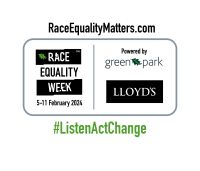Don't 'do more', do better: The CIPR's journey to the National Equality Standard
If public relations companies are serious about equality, diversity and inclusion, they need to measure their work against an external standard, says the CIPR’s chief executive, Alastair McCapra, in today’s blog marking Race Equality Week

The latest data from the Office of National Statistics (ONS) shows that the public relations sector in England and Wales is still around 90 per cent white, which for a predominantly urban sector is particularly striking. Corporates and agencies continue to lose talented women, who either leave established employers after a few years to set up on their own or exit public relations altogether to do something more rewarding. These figures have barely changed in a decade, so whatever initiatives public relations employers think they’re doing are not working, and whatever they are managing to do is not enough.
As the professional body it is the responsibility of the CIPR to take a lead in changing this, and to that end, in September 2023 the CIPR became the first UK professional body to achieve the National Equality Standard (NES). [The NES is the UK’s leading diversity assessment framework, developed in partnership with the UK government and in collaboration with 20 public and private sector organisations.]
It was not an easy achievement – we had failed on our first attempt a year before this. To gain the accreditation we had to achieve a pass in 25 out of 35 competencies, and on our first run, we passed only nine.
When we started on this journey, I had little idea how much work would be involved or how much we would need to tighten up. I assumed that most of what we did was ok, and a bit of tidying up would see us through fairly easily. I was very wrong! It wasn’t that we were doing anything particularly badly, but the good things we were doing were not hard-wired into the organisation, with proper internal oversight, and periodic review.
Quality assurance
Deciding to go for NES accreditation was a big decision for the CIPR because it forced us to change our game. Before, I thought of equality, diversity and inclusion (EDI) as a background philosophy which informed our general working practices and sporadic improvement initiatives. I did not think of it as a kind of quality assurance system ensuring that we were consistent and accountable across everything we did.
If you found a company that didn’t audit its accounts, you probably wouldn’t want to work for them, or sign a contract with them. Organisations say their people are their greatest asset, so what sense does it make to audit their efforts to stay financially sustainable, but not their work to make themselves socially sustainable?
For years – decades even – the public relations sector has been talking earnestly about how it needs to ‘do more’ on EDI. To which I have always wanted to say out loud: “More than what? Are you even doing anything at all, and if you are, will doing ‘more’ of it have any positive impact?” It was only a couple of years ago that the penny dropped for me – the only way to know whether you were doing anything useful, and whether doing more of it would be an improvement, was to measure your work against an external standard.
One size doesn't fit all
There are different standards available, and the National Equality Standard may not be right for you – it is a major challenge for an organisation the size of the CIPR and I’m not sure how an employer much smaller than us could manage it. But whatever you do to promote EDI in your organisation, I think working to an externally monitored standard is essential.
I want to encourage employers in our sector to choose a standard in 2024, the NES perhaps, or some other measure if that suits you better, and make a start in working towards achieving it. ‘We must do more’ isn’t even a bad answer any more. It’s a rubbish answer, and a sign of a complete lack of inclination or commitment. Don’t ‘do more’. Do better.
 Alastair McCapra is chief executive the CIPR, the world's only Royal Chartered body for public relations professionals.
Alastair McCapra is chief executive the CIPR, the world's only Royal Chartered body for public relations professionals.
Read more: In yesterday’s blog, Elizabeth Bananuka (founder and CEO of The Xec., Blueprinted, and BME PR Pros) explained how Alastair was one of ‘five white guys’ who helped in her fight for true diversity.
